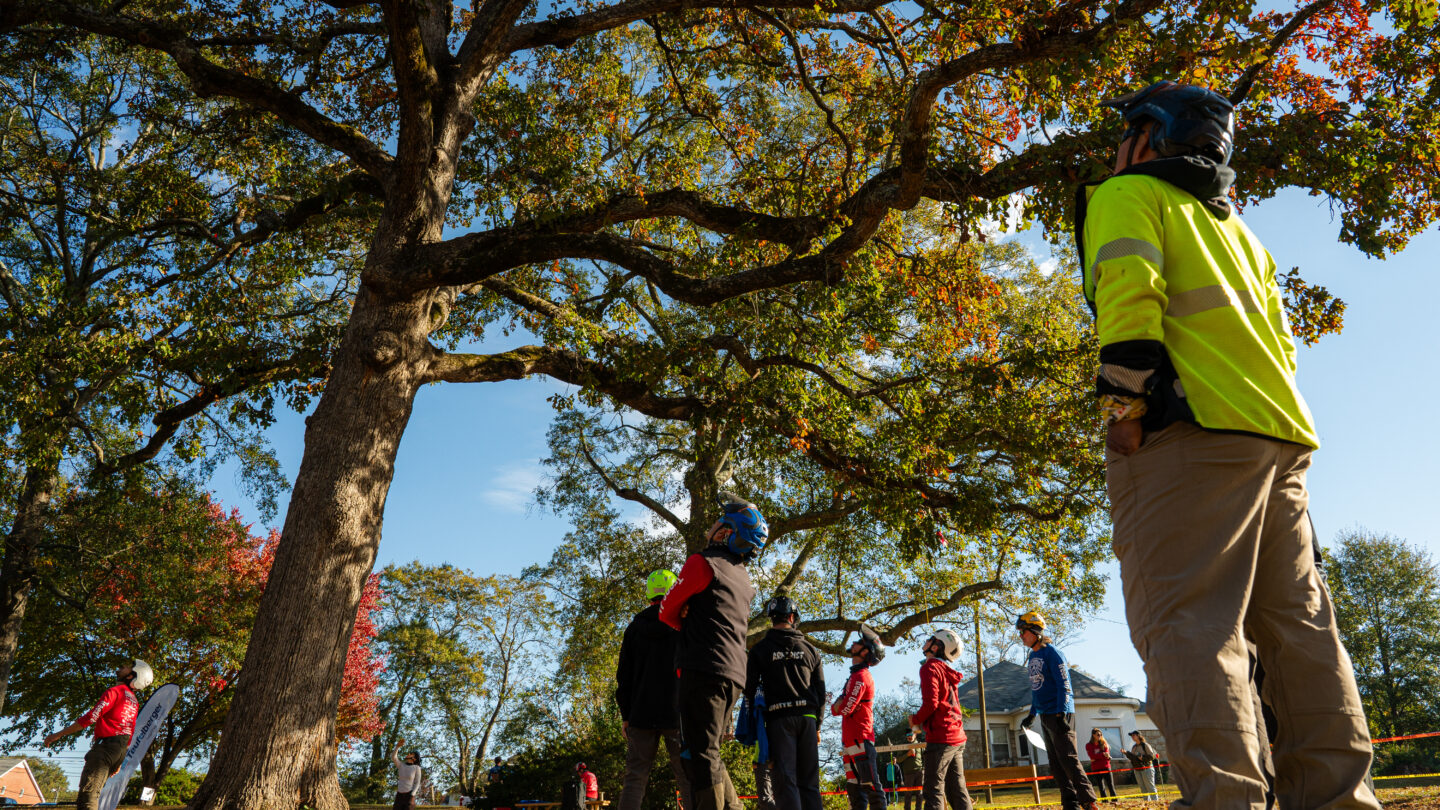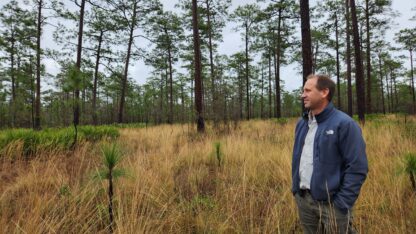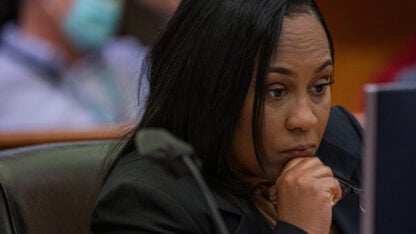Whether they are inspecting trees in poor health or climbing to saw down a limb above a home, arborists are everywhere in Atlanta, a city with the highest percentage of overall urban tree canopy in the nation.
This month, the Georgia Arborist Association held its annual Trees Unite Us conference and tree climbing championship in Decatur. The conference and competition bring together arborists from all over the state and country to test their mettle against one another in challenges and promote training and professionalism within the industry.
Georgia arborist Jon Carlson competed in the masters’ challenge, the contest’s final round that brings together all the skills tested during the weekend. He said the competition is also great for raising awareness about the industry because many people don’t know what arborists do or that there’s more than one type of arborist.
“There’s consulting arborists, who is someone that just comes out and checks the tree from the ground, does visual inspections, soil tests, and basically tells you what you need to do or what the tree needs,” Carlson said. “And then a climbing arborist is someone that comes in behind her and takes that work order and does the work throughout the tree or to the root system.”
The weekend competition focused on climbing arborists. The events, Carlson said, are standardized and used at competitions internationally. He himself has traveled around the region with his wife in recent years competing, but some contestants have gone worldwide.
“A lot of it is continuing education and just bettering ourselves,” Carlson said. “It’s just learning so we can take it back to Monday through Friday and be more productive and safer.”
Fifty-two competitors were tested on five skills and rated based on completion and speed as well as safety and finesse. They test how quickly they can ascend a tree, set up ropes to climb — and perhaps the most challenging — rescue a 180-pound dummy from the treetop in a medical emergency scenario.
Luis Vasquez, another arborist in Georgia, said the industry can be dangerous, making the rescue practice absolutely critical.
“There’s been a lot of accidents … it’s good to know, you don’t know when you’re going to need it so we keep practice, practice every year,” Vasquez said.
His company and the vast majority of reputable arborist companies host at least one or two of these types of safety trainings annually. Those that don’t, he said, need to.
“We work to not do the actual rescue, but if we need to we have the training,” Vasquez said.
The Georgia event acts as a qualifier: arborists can compete nationally and even internationally in these competitions.









